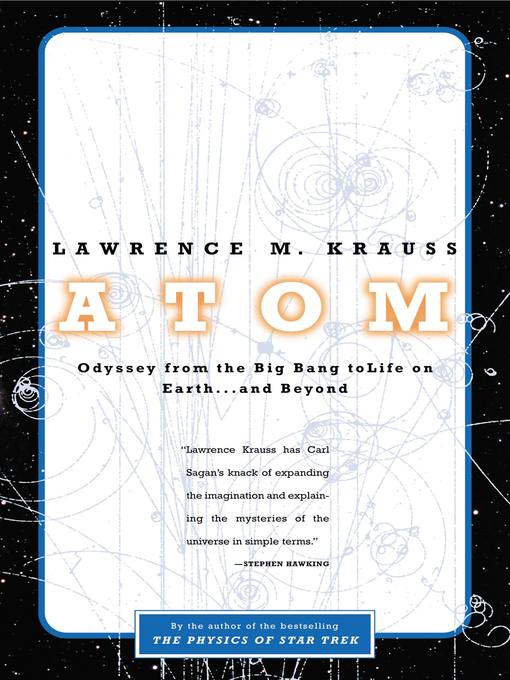
Atom
An Odyssey from the Big Bang to Life on Earth... and Beyond
کتاب های مرتبط
- اطلاعات
- نقد و بررسی
- دیدگاه کاربران
نقد و بررسی

March 5, 2001
This meticulously detailed, if partly speculative, account of an oxygen atom's life is aimed at a broad audience, but Krauss (The Physics of Star Trek,
etc.), the department chair of physics at Case Western Reserve University, is likely to alienate some of his Trekker fans with his ungainly discussion of quantum mechanics. Several billions of years ago, the protagonist of this tale emerged from a dazzling explosion that resulted in a slight imbalance between matter and antimatter. Although it is unclear how this disparity came about, it produced all the matter that exists in the universe today. Deciphering what occurred amid the resulting primordial soup to fuse quarks into protons and unite them with neutrons and electrons will prove a strenuous task for the lay reader, but Krauss's muddled prose becomes much more lucid as his oxygen atom grows older, flitting in and out of emerging stars and young planets. The atom bears witness to many cosmic phenomena before settling into the hot, carbon dioxide–rich atmosphere of a budding Earth. Through an exploratory discussion of how life may have unfolded, the author's ripe imaginative powers and literary prowess come into play. Krauss presents a wealth of information that covers a range of disciplines (such as geophysics, biology and paleontology) and concludes with a glimpse of the future, where the forces that spawned life will destroy it. Although physics fans may rush to pluck this one off the shelves, they will find that the book's virtues lie in its vivid descriptions of an evolving planet rather than its scholarly discussions of particle physics. (Apr. 11)Forecast:Despite its flaws, this will sell, thanks to Krauss's visibility (he's a contributing editor of
Discover); the book has been optioned for a PBS series.

Starred review from February 15, 2001
Surpassing even Blake's vision of the world in a grain of sand, Krauss offers readers the entire cosmos in a mere atom. The natural history of a single oxygen atom takes us from the birth of its subatomic constituents in X-particle decays 12 billion years ago to its death in proton disintegration billions of years in the future. The episodes of its long life take this tiny protagonist into an astonishing variety of settings--from the fiery heart of a star, into the icy nucleus of a comet, into the life-sustaining oceans of Earth, and finally into the vastness of empty space. Along the way, this tiny bit of inanimate matter proves surprisingly informative as to the nature of life, the meaning of human consciousness, and the final destiny of the universe. While sparing the nonspecialist the rigors of mathematical physics, Krauss does invite his readers to test themselves against more technical sources, a dozen of which he recommends for further study. The intellectual excitement of this book will doubtless propel many of its readers deep into more rigorous literature. (Reprinted with permission of Booklist, copyright 2001, American Library Association.)

























دیدگاه کاربران